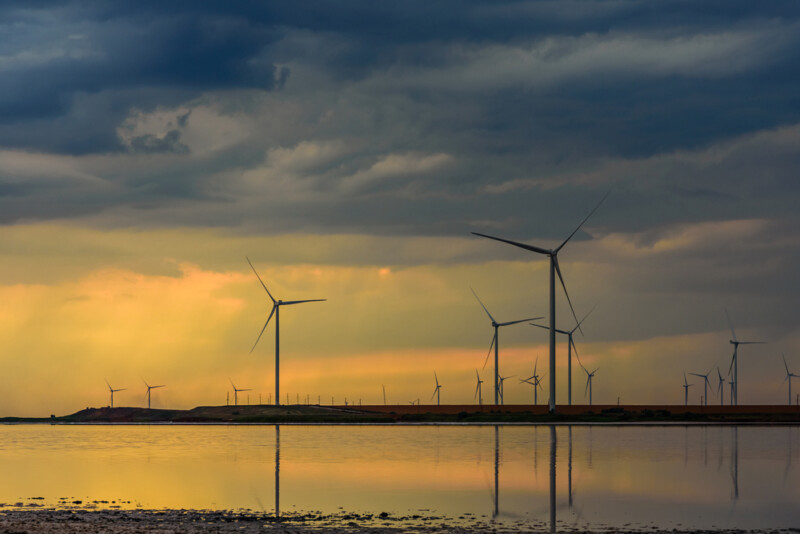The NSW Productivity Commission has launched its Productivity White Paper, Rebooting the economy, which, amongst other things, tackles water and energy regulation.
The NSW Productivity Commissions said the White Paper provides a pathway to higher wages and better living standards for New South Wales’ citizens and a reduced state debt without additional taxation.
The report was prepared over the past three years with extensive consultation and proposes 60 opportunities to increase productivity by focusing on areas including talent, innovation, housing, infrastructure and natural resources.
NSW Productivity Commissioner, Peter Achterstraat AM, said the White Paper suggested a range of options on how to boost the economy in the face of changing work patterns and altered demographics, both of which had been further heightened by COVID-19.
“Opportunities in this White Paper build on the progress already made, and are designed to realise a broader reform agenda aimed at facilitating the state’s post COVID-19 recovery,” Mr Achterstraat said.
“The report helps pave the way to delivering a skilled and high-performing workforce to enable us to improve outcomes which will lead to higher wages and better-quality services for everyone.
“When we improve educational opportunities, from cradle to retirement, reduce road congestion and change the way we commute, we unlock greater efficiencies and improve our citizens’ quality of life.”
Key water and energy recommendations include:
Water
- Recommendations 5.1–5.3 Improve governance by setting a long-term vision and plan for the sector, clarifying roles and responsibilities, and improving collaboration and cooperation
- Recommendations 5.4 Engage with the public on the benefits of purified recycled water for drinking and explore investments that demonstrate and build trust in the recycling process
- Recommendations 5.5 Design and implement a needs-based funding model and work with the utilities to develop more efficient operating models
- Recommendations 5.6 & 5.7 Ensure the way we manage water demand maximises benefits for the community
Energy
- Recommendations 5.8 & 5.11 Where possible, ensure NSW policy is developed and implemented within the National Electricity Market’s governance structure
- Recommendations 5.9 & 5.10 Revisit the Energy Security Target and conduct careful evaluation before invoking the Electricity Infrastructure Safeguard under the Electricity Roadmap
- Recommendations 5.12 Lift the ban on nuclear electricity generation for small modular reactors
- Recommendations 5.13 & 5.15 Investigate new and innovative approaches to improve electricity pricing and achieve the NSW Government’s 2050 target of net zero emissions
- Recommendations 5.14 Improve land use regulation and manage demand for gas
- Recommendations 5.16 & 5.17 Rationalise energy governance and streamline energy subsidies
NSW Treasurer, Dominic Perrottet, thanked Productivity Commissioner, Peter Achterstraat, for his work on the White Paper, which followed the release of a Green Paper in August 2020.
“I want to congratulate and thank Peter for the work he has done,” Mr Perrottet said.
“We will carefully consider the ideas in this report and our collective challenge is to debate these opportunities, identify those that we should proceed with, and then find practical pathways that lead to a better NSW as a result.”
Mr Achterstraat said the NSW Government had already accepted some of the draft recommendations proposed in the 2020 Green Paper, with many in their early stages of implementation, such as reducing regulatory restrictions for small businesses.
“This report finalises the work of the commission over the past three years and lays a pathway to future economic growth and prosperity for New South Wales,” Mr Achterstraat said.
“As part of the commission’s future work program, we will continue to explore new opportunities with stakeholders to inform our advice to the government.
“Ongoing reform will ensure we continue to reap the long-term benefits driven by productivity growth — to deliver a firm foundation for our state to build better quality of life for the people of New South Wales.”
Other key opportunities identified in the report include:
- Building new pathways into trades, targeting VET subsidies, and encouraging higher quality training
- Consolidating and increasing flexibility of employment and industrial zones to accommodate new business
- Developing a long-term vision for the water sector to identify and prioritise approaches to meeting communities’ water needs
- Promoting more flexible rules for the use of drones and regulate to let personal mobility devices and e-bikes fulfil their potential
The full report can be downloaded here: https://www.productivity.nsw.gov.au/white-paper.













